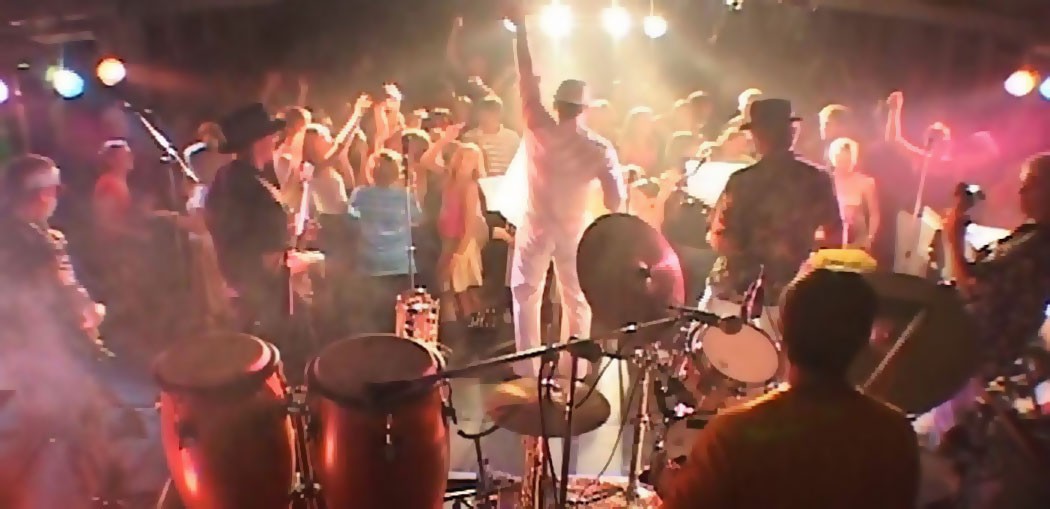
Lexington, Kentucky’s music scene is in a precious moment : lots of local bands of genres ranging from rock, funk and hip hop to folk, blues, bluegrass and jazz creating and performing original music. Some bands have developed name recognition and others are on the way. Many are recording. LexJam, a monthly gathering, is spawning new young artists by providing a stage and audience experience.
It’s a good scene. But many believe it could be so much more.
Live local music performance has always been a challenge for artists and venue operators, but perhaps never more than now. It’s hardly a secret that mind-boggling and ever-evolving technologies have changed the way many of us consume music.
StageIt.com, for example, makes it easy to put on a live-streamed concert from home or a practice space – and charge “admission” to view it. Home theater systems deliver awesome fidelity, camera angles that make front-row-center second rate, and the ability to hit “pause” whenever nature or the ‘fridge beckon.
But – and you knew that was coming – but, what about the vibe?
Fortunately, for now at least, this essence of the musical experience still relies completely on human interaction.
So, we wondered what might be done to build on Lexington’s small but bustling music scene, in ways that bring together performers and appreciators.
Where better to turn for informed perspectives about the state of local live music than to those who play it, present it, record it and savor it?
We placed on the table, the following set of questions. You’re invited to offer your thoughts on the UnderMain Facebook page.
– If you were appointed “Music Czar” of Lexington, Kentucky, charged with leading the growth of a distinctive, authentic music scene, what would be your priorities?
– What would you change?
– What would you preserve?
Duane Lundy
Owner, Shangri La Productions / Guitarist
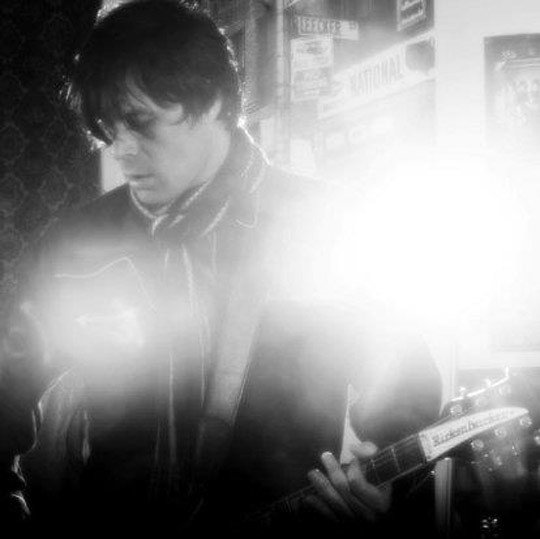
We desperately need a club that is a 350-500 capacity room with a very good PA. This would bring in national talent as well as providing the necessary venue for nurturing local talent. In addition, this room would be used for other events. This can’t be done in most venues (too dirty or dark.) We need to nurture an audience that feels comfie in a venue.
What would you change?
Same as above. This would provide us all with more exposure on a national level; booking agents don’t trust the current state/condition of lexington and its venues, therefore we are out of the loop. This hurts the bands, and all industry- related businesses (studio/press/radio)
What would you preserve?
Keep what we have. The competition will clean house with the unnecessary participants.
Chris Weiss
Guitarist, guitar instructor, and church musician

Lexington has a long history of being a place for musicians in Kentucky to congregate. Because of the DIY nature of the changing music industry, Lexington has lost a bit of the collaborative spirit. I’ve seen jam sessions decline with the loss of time in the working musician’s schedule. I’ve seen some over self-absorption and disillusionment as the result of pushing and pushing to get people out to shows.
Like any industry, networking is key to success. Contrary to popular opinion, social networking is not an efficient space for musical creativity. We must interact on a very real level. No artist is an island. We need each other, for moral support and for artistic growth.
I think our number 1 goal should be to develop and foster our musical community through jam sessions and songwriter rounds, writing workshops and shared performances.
What would you change?
LexJam (a monthly community jam session hosted at Natasha’s Bar & Bistro) already has had tremendous success with this very idea. We need more of these types of events, put on in peoples’ homes, at ArtsPlace, in parks, and anywhere that allows it. Listening to each other’s work helps pull us out of our artistic tunnels. The power of music is that it helps us see things in new and fresh ways. It’s like professional development for the musician. Simply the time spent with other artists helps us develop relationships that spur us on to achieve. Jam sessions help us to find musical compatibles, people that we want to make music with. We just really need more of this. It leads to more music.
Shared performances help fans of one artist to come and see other artists they may like as well. This encourages them to get out the next time to see that new artist. It’s good for the concert goers, and it also helps artists see what’s going on in their part of the musical world.
Writing workshops are another form of professional development that help us grow in our craft. We could take a page from the woodworkers playbook. Woodcraft holds workshops and lessons every weekend teaching professionals and amateurs alike how to tackle different projects. I think the music stores in town could take a driver’s seat in the same way for the musical community. LAMA (The Lexington Area Music Alliance) has attempted this with mixed results. I think they’re on to something really good. We might start smaller, and provide a place for songwriters to meet discuss their work, schedule co-writing sessions, and trade advice. Again it’s continuing to build the networks and grow in our craft.
Finally the big thing I’d like to see change is a larger interest in concert going. Right now there is a decent crowd on any given evening, but I know of too many people that never go to shows. Even friends that don’t go to mine! It’s a culture of internet consumption. I’m not sure how to battle it, but I think that venues need to make it easy for consumers. The information needs to reach more people. Periodicals aren’t enough. This is where social media can help, but nothing will replace word of mouth and posters. I’d like to see more local and chain business with obviously placed bulletin boards. Stop treating musicians with posters like a nuisance to be hidden in the back room by the toilets.
Lexington is one of the best places to raise a family in the country. As a result we have so many young music lovers with families. We need to do a better job of scheduling music for them: performance options with bed times in mind, and ticket prices with baby sitters in mind. Utilize local churches to schedule performances with Nursery attendants for concert goers. That might be pushing it a bit, but we need to get out of the box to really create a city of music.
We are roughly the size of Nashville. There is no good reason why we aren’t making more waves in the music world.
Carl Williams, Jr
Guitarist, Kati Penn and Newtown
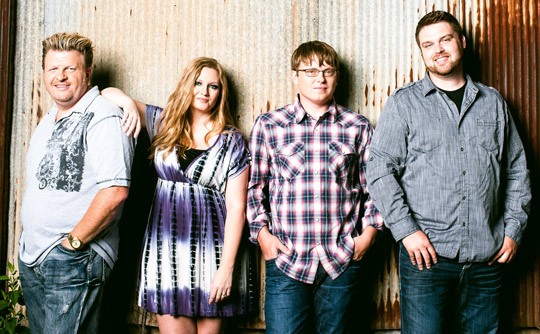
Advertising! People should know around the region that Lexington is the go to place for music! Any news outlet that can be used to get the word out, is of the utmost importance.
What would you change?
Venues should invest in sound equipment that can handle any band of any genre, as well as their stage. A great stage is part of the experience of the ticket buyer.
What would you preserve?
The iconic venues in town – The Kentucky Theater, The Red Slipper Lounge, etc. They should be renovated to keep history alive in Lexington, updated to handle bands on any genre. We should do mini-documentaries on them as a way to pay homage and bolster support for bringing them back to their former glory. We could also do a weekly show on local tv and the internet to showcase each venue, with video from shows played there, interviews with the owners, upcoming events, showcasing Lexington and it’s rich musical history.
We should put together a team of folks to help bring this forward.
Art Shechet
Co-owner, Natasha’s Bar & Bistro

Our biggest challenge is audience development. I know musicians would like more professional stages in town as performance options but, frankly, we have a hard time turning out audiences on a consistent basis for the relatively few stages we have (not a corner platform in a bar filled with drinkers).
There are a lot of factors that account for this, some specific to Lexington, others more related to larger issues and trends.
An overarching trend is one you hear a lot; the fight for folks’ entertainment dollars and leisure time is more competitive than ever. And…folks have so many more ways than ever to listen to music wherever and whenever.
Lexington has a pretty segmented music scene where audiences seem to stick to their favorite places and music-genres and age demographics (Al’s, Natasha’s, Willie’s etc) like clubhouses. This is partly because we are spread out and do not have density of music venues in areas where it would be easy to be adventurous and go to several clubs to sample.
And in Lexington there is a very significant issue of resistance by a significant percentage of our residents to coming into the city core where most of the venues are for entertainment and dining etc., due to many factors.
Additionally, unlike many other towns with universities and colleges (Austin, Nashville, Asheville, even Bloomington), we are not doing a very good job of reaching students on our campuses to come out to venues, even those that are all-ages.
What would you change?
As David Byrne writes in his book “How Music Works”, musicians hanging out at venues to listen to other musicians help create a music scene (and audience.)
Hilly at CBGB, with the understanding of all performers there, let in musicians without paying a cover to encourage them to hang out and listen to others. We could explore something like that.
More LAMA-developed/sponsored events, like BoB (Best of Bluegrass), to promote the music scene. A music week, akin to restaurant week? Venues, musicians, and supporters coming together to work in a concerted way on amplifying the music scene and developing audiences.
Clive Pohl
Guitarist, songwriter, The City / Dayjob: Co-owner of the architecture and design firm Pohl Rosa Pohl
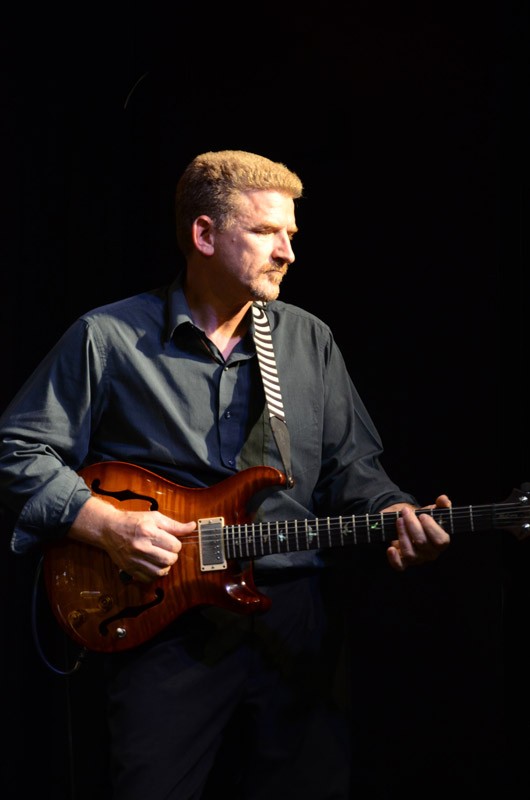
At the risk of oversimplification I would suggest that there are 2 schools of musicians in Lexington: those who read music and value it’s theory and notation (those who embrace an academic approach) and those who respond, learn, and communicate intuitively (those who embrace a vernacular approach). It would be important to understand, accept, and communicate that each approach is of equal value to Lexington’s musical culture and is in pursuit of a similar outcome: connection with others through music.
A musical czar would work to improve and increase available venues, centralize marketing for these 2 schools, and facilitate interaction between them.
What would you change?
An Arts and Entertainment District should be identified, branded, and promoted such that within a few blocks the lucky people of Lexington could access, on foot, the full spectrum of Lexington’s rich musical heritage. This process has begun with the Distillery District but, as we know, it’s full realization as an Arts District has proved an elusive target. Lexington’s Leadership (the Mayor and City Council) need to be reminded of this vision and held accountable over the long haul. Our musical czar could help to keep that vision alive.
What would you preserve?
The momentum that we are now enjoying.
Donald Mason
Lead singer, Soul Funkin’ Dangerous / Vice President, Lexington Area Music Alliance
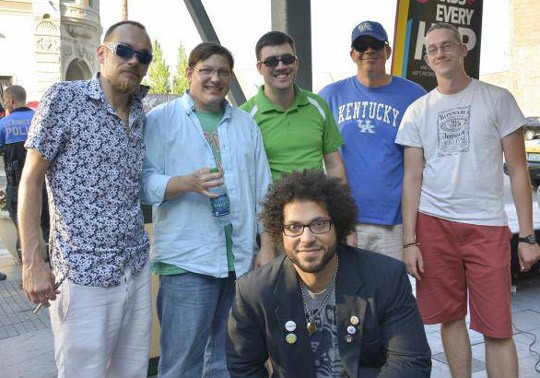
My first priority would be to evaluate the communication method of music events in Lexington. This would probably start by forging a relationship with the Lex Convention and Visitors Bureau to make a uniform platform. Then speaking with the venue owners and media outlets that submit calendars of events.
Second priority would be to explore the underage restrictions for musicians and music stakeholders that are involved with groups. I would want to encourage creative growth, regardless of age and allow some leniency, albeit with safeguards built in.
Lastly, I would do a survey of all the regional cities and towns and compare them to the top music cities in America (i.e. Nashville, Asheville, Austin, Chicago, etc) to see how the region in general stacks up. This would allow Lexington to build a blueprint on where the city is heading, what is possible, what is out of reach and maximize the visibility of Lexington as a potential music venue city.
What would you change?
Through Lexington Area Music Alliance, we strive to do what is best for the music scene, but are limited in the power and control that we can wield for the greater good. Creating a stronger alliance of all pro music groups as well as building stronger relationships with the civic leaders and business people would help establish a community feel. In some of the more notable music towns, this is how they reached their success. In a town such as Austin, TX, everyone knows that live music is a cultural and economic growth center. People in the town rally around the scene and local businesses embrace it.
What would you preserve?
Lexington has a great pool of talented musicians as well as a pool of diverse venues. Preserving the talent in the city and helping keep the venues operational would be crucial. Losing talent to other outlets takes away from the growth of the music scene. While it is great to have national acts flow through, the local music must stay strong and encourage talent to stay. With the venues, it is impossible to manage all of the operations and finances of each establishment. Finding a collective way to promote and help venues would be one way to achieve some positive results.
http://www.soulfunkindangerous.com/
Brian Powers
Bassist / Dayjob: Technical Services Manager, Continuing Legal Education, UK College of Law; Student campus radio advisor, Transylvania University
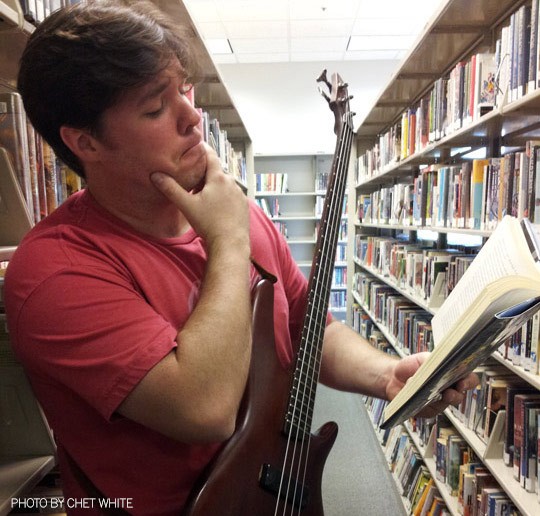
I would try to create a centralized district for live music with plenty of parking, access and public transportation.
The next step would be to create a cohesive annual music festival with national acts supported by local and regional acts.
The final step would be a city-sponsored marketing campaign geared towards attracting both acts and audiences to Lexington as a convenient destination for live music at the axis of two major interstates.
Keith Halladay
Drummer / Dayjob: Humanities adjunct faculty, Bluegrass Community and Technical College
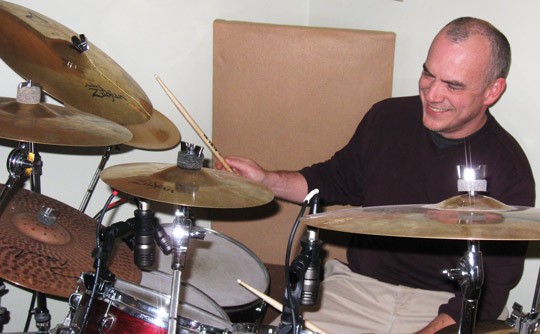
I would work to integrate the UK student population into the downtown scene through more 18+ shows, student discounts, on-campus advertising, transportation options, etc.
Priority two would be public funding of inexpensive, secure, and comfortable rehearsal space, available for rent by the hour, week, or month.
We need a city ordinance requiring all televisions be turned off in venues during live performances.
I would call for the dedication of various spaces around town, including the 5/3 Pavilion, as free performance spaces, where any act may set up and play at any time, no permit required, no hassle from anybody.
Wilson Sebastian
Owner, Willie’s Locally Known

I think that in order for Lexington to be recognized for its unique music scene it really must start with the people of our community identifying themselves with it. We Kentuckians are a proud people and are excellent at selling our “brand.” We love to discuss the differences between a whiskey and a bourbon and to talk all about our beautiful farms, how much fun a day at Keeneland can be, and what kids are coming here to play basketball. But as far as the local music scene goes, with the exception of those that would seek out live music wherever they may be, people here don’t identify themselves with it like they might with some of the better known signatures of our area.
Places like Nashville, Austin, New Orleans, even Athens, are known for music because these places are singularly identified with it. You cannot escape the music scene in these places, it’s everywhere you look. People are busy with their own lives there too; they have jobs and kids to raise, and they are not going to shows every night, but they do identify with their music scene because it’s all around them.
In order for Lexington to be more like these places the music itself must be more present in the fabric of our everyday lives. This means making music more accessible to families and hard working folks by doing early shows, having venues that have more to offer than music only; places that can entertain with great food and drink while immersing their patrons in an environment that celebrates our music. This idea leads to people discovering something that they might not have even been looking for, and when that magic happens, then, people identify themselves with it.
It’s about making the scene accessible, putting it in areas you wouldn’t expect it to be, and capturing the hearts of the less obvious consumer. Once the folks here feel the music scene is part of who they are their natural Kentuckian marketing abilities will take care of the rest.
Arthur Rouse
Drummer / Dayjob: Owner, Video Editing Services
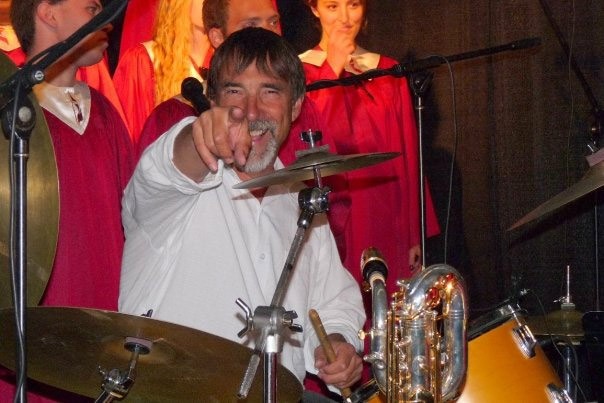
First of all – articulate and celebrate the foundation for Lexington’s interest and enthusiasm for music so that folks know we have history, i.e. DeWeese Street’s national prominence (“Do as you please street”). Birthplace of Marvin Gaye. Jazz – from Les McCann to Miles Osland and the UK program. Opera – strong connections to the Met, etc. with Everett McCorvey. Emphasize a history.
Second priority (probably actually the first) is to recruit major industry with better jobs for Lexingtonians. Apple could/should manufacture in the space vacated by Lexmark, Amazon should have a professional center here. UK’s research spinoffs, Bingham Law are both good examples of new economy.
What would you change?
Lexington toyed with relaxing open container laws during WEG and from all I heard there was no uptick in anything negative. I recommend a continued liberalization in this area coupled with the kinder/gentler approach from the Lexington Police Department.
In addition, a steady degree of attention should be paid to other neighborhoods and their ascension, such as Southland Drive, North Limestone, etc.
Let’s celebrate the successes of our music studios.
What would you preserve?
I’ve had many visitors from places like Austin tell me that Lexington is really “happening” and yet is still small enough to enjoy.
Mike Vandemark
Lexington Lab Band; Big River (drums); the Lauren Mink Band (bass); Funk Seminary (bass/vocals); Studio: Charlie’s Tone Lab / Dayjob: Programming Director at Southland Christian Church
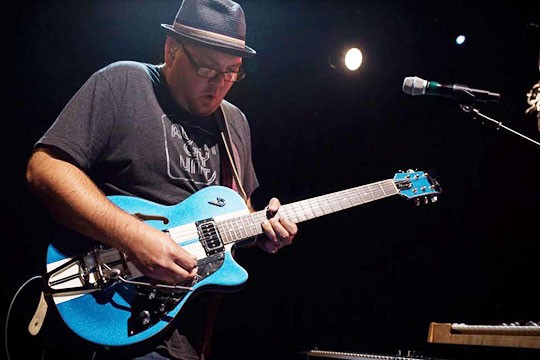
I think one of Lexington’s needs is better equipped venues for live music. The clubs and bars exist but have not been intentional in their set-up. Consulting with the owners to provide a more conducive environment could go a long way to increasing both quality and demand. Often it’s just small changes in equipment or stage design.
Also, a more organized community of gigging musicians that can discuss challenges and brainstorm solutions and new ideas would help in keeping our movement healthy and vibrant.
What would you change?
I would do away with the idea of cover charges. Musicians have a skill that venue owners want. In my opinion if they are good enough to have representing your business for 4 hours that night they ought to be contracted like any other person providing a service. The idea of a cover is to help with the draw and put it on the band. If you are hiring bands that have a large draw but are terrible when they quit or move to another venue you will lose that crowd and be known for bad music. If you hire bands that are great and pay well when one of those bands moves on you’ll still be known for great music and another great band will want to work for you. If the venue provides quality service from food to atmosphere to music the draw will be there enough to sustain that business model. There are many club owners doing this already and it provides for a much better working atmosphere for all parties.
By 1am most patrons are beyond caring if the music is live or over the PA. Keep the live musicians playing at times that it matters to the listener. After midnight it quickly becomes background music for people to drink to.
Scott Whiddon
Lead guitarist & songwriter, Palisades / Dayjob: Associate Professor of Writing, Rhetoric, and Communication; Director of the Writing Center at Transylvania University
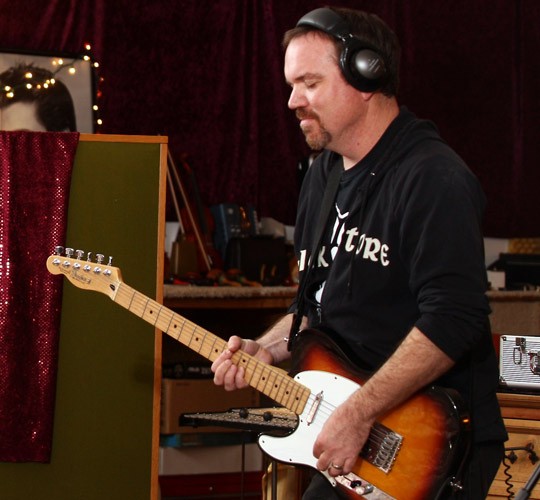
I hope that the first thing that anyone would do in this dream position is to help other Lexingtonians value what’s already here. My wife and I have lived in several places. Rarely have I seen such support, collaboration, and generosity between musicians — and in a very affordable town, too! I’d argue that instead of a “scene,” we’re blessed to have various networks, all working in interesting ways, to make and promote music. It’s done well. I’m Lexington proud.
My offerings here come with a caveat: I am a musician and a writer. I’ve observed music scenes (as a player, a fan, etc) for most of my life. I am not a small business owner, a legislator, or an economist. But, I hope my comments promote some discussion.
I am very glad to see venues and events that are open to earlier shows — and shows that have tie-ins to other forms of art. For example, the Tadoo Lounge series is quite good at showcasing excellent music, at a reasonable hour, to an all-ages crowd. Now, that’s not to say that I don’t love late night shows, too — there’s room for all.
But as certain music fans get older (with different jobs, with children, etc), it does get harder for folks to make a 10pm show on a Tuesday…no matter how great it is.
I’d love to see a venue take a risk and try having 7pm/8pm shows on weeknights. Or, 10pm headliners on weekends. Or, have a band do two sets. Granted, this involves costs: getting the sound person there early, getting bar staff there early, etc. And, the larger concern: training an audience to know that a show starts at a certain time when they are used to a show starting much later.
Willie’s, as a venue, is doing some interesting things – and doing them well, I think – but I’d love for venues that cater to different crowds/genres to try some experiments in programming, etc.
But, I think it might be worth it. By partnering with local food trucks, and other tie-ins, one could do a very cool series of music that still rocks, that still has angles and edges, and yet starts earlier on weeknights. I think there’s a market here.
I’d also like to see popular events such as Thursday Night Live consider some programming changes as well. It seems — and I could be wrong here — that many of the acts in this incredible, well-run, highly successful showcase are, essentially, cover bands. And that’s fine. Nothing wrong with that. But there are so many wonderful bands in this town that create original music. I’d love to see more of a spotlight on these bands via these high profile events. When folks come in from out of town — for business, for tourism — they are likely to attend such city events. Here’s a chance to do more for what’s made here – with an original stamp.
There are other things that I can imagine: tax incentives for local music studios or venues, to help with costs; or, some sort of funding for a yearly Lexington music compilation that could be distributed to visiting business interests (using local studios, original locally-made music across genres), etc. I look forward to reading what others offer.
